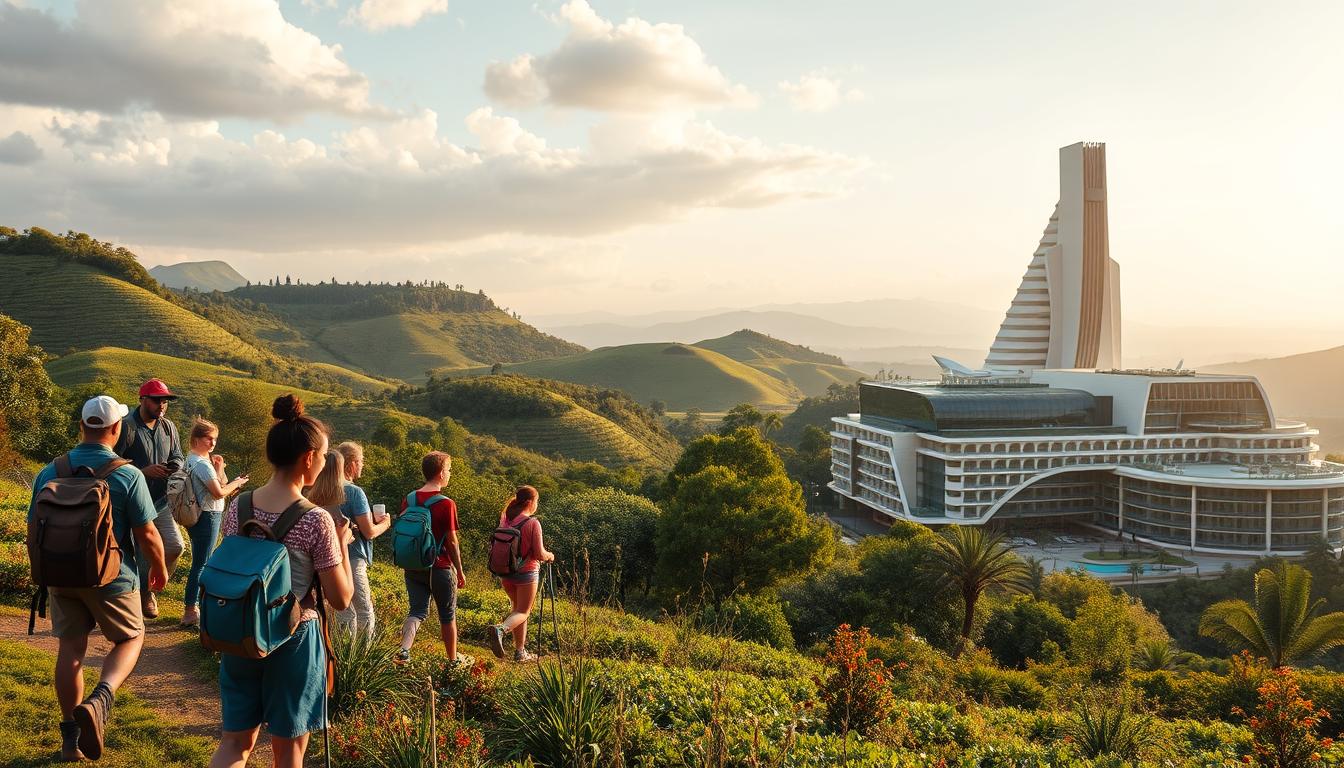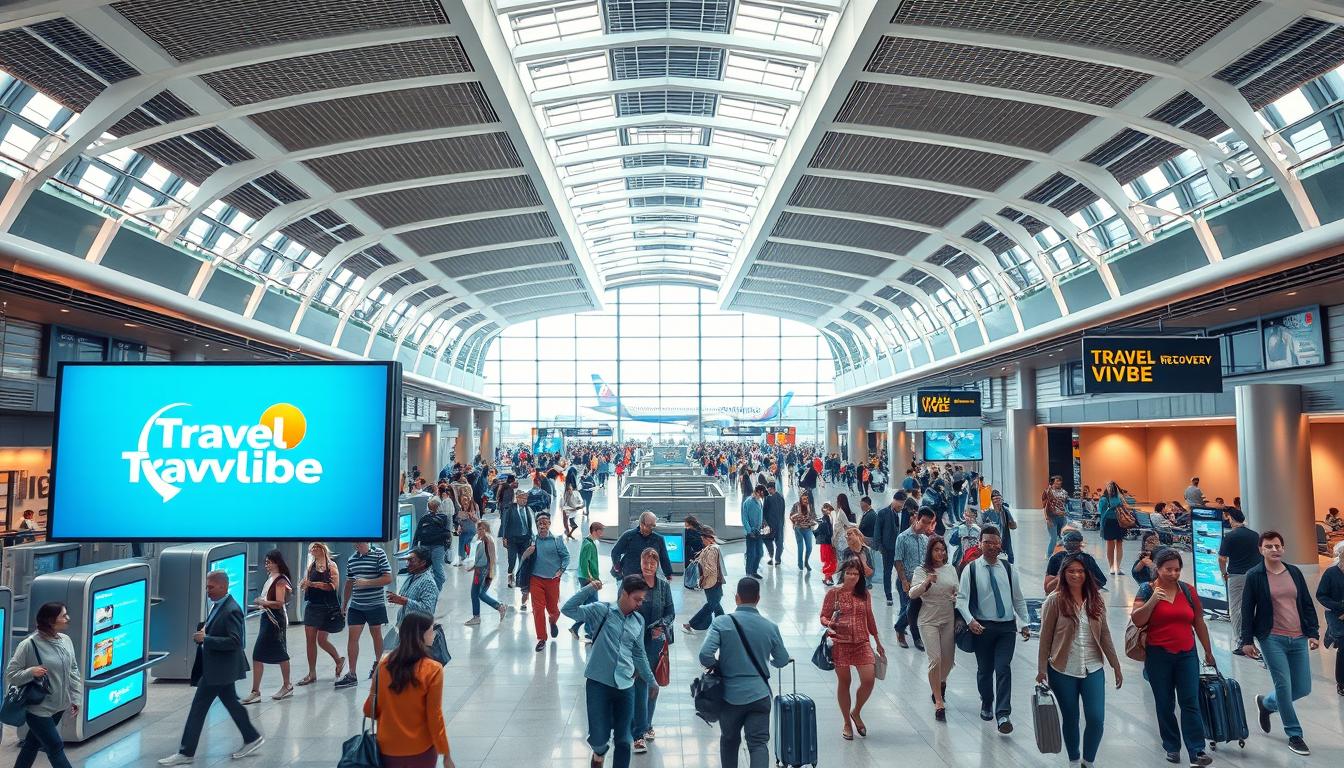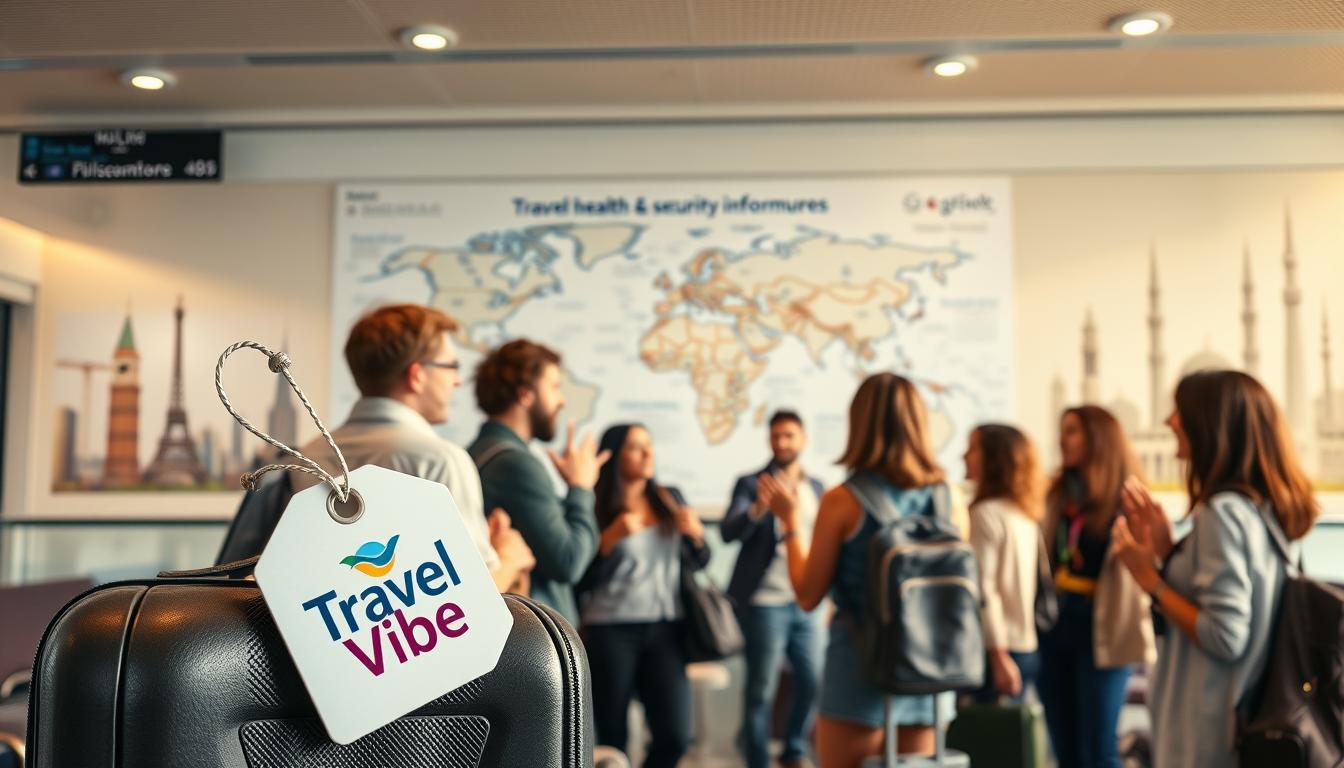As we navigate an increasingly complex world, travel trends offer a sense of structure and understanding. According to Jenny Southan, CEO of Globetrender, “People are drawn to trends because they provide clarity and a roadmap for how to engage with the world around us.”
The travel industry is rapidly evolving, driven by changing consumer values and global events. We’re witnessing a shift towards more meaningful experiences that reflect our deepest longings. For cultural futurist Jasmine Bina, “Travel trends are a window into what people really desire when the rules of everyday life are suspended.”
We’re on the cusp of a new era in travel, with three dominant trends emerging: sustainable tourism, solo travel experiences, and redefined luxury vacations. These trends are not just passing fads but meaningful indicators of deeper societal shifts and human desires.
Key Takeaways
- Travel trends provide clarity and a roadmap for engaging with the world.
- The travel industry is evolving rapidly due to changing consumer values.
- Three dominant trends are emerging: sustainable tourism, solo travel, and luxury vacations.
- These trends reflect deeper societal shifts and human desires.
- Understanding these trends is essential for travelers and industry professionals.
The Evolving Landscape of Travel in 2025
As we step into 2025, the travel landscape is undergoing a significant transformation, driven by global events and shifting consumer desires. The travel industry has largely rebounded from the pandemic, but new challenges have emerged, including economic uncertainty, geopolitical tensions, and changing leadership landscapes.Travelers are now seeking experiences that reconnect them with something meaningful, whether that’s nature, cultural heritage, or authentic human connections.
The current state of the travel industry is complex, with various factors influencing travelers’ decisions. We’ll examine how global events are reshaping travel choices and analyze the deeper human needs that drive travel decisions in uncertain times.
How Global Events Are Reshaping Travel Choices
Global events, including economic uncertainty and geopolitical tensions, are directly influencing travelers’ decisions about where, when, and how they travel in 2025. These events have created a sense of unpredictability, making travelers more cautious and discerning in their choices.Trends like stargazing, holiday romance, and nostalgia tourism reflect a desire for connection and meaning. We’ll explore how these trends are shaping the travel industry and influencing consumer behavior.
- Travelers are seeking experiences that offer a sense of connection and community.
- Global events are driving a shift towards more meaningful and authentic travel experiences.
- The travel industry is adapting to changing consumer values and priorities.
Why Travel Trends Matter for Today’s Explorers
Travel trends serve as a “shared narrative” that helps people understand their place in a rapidly changing world. By understanding these trends, consumers can make informed choices, and industry professionals can anticipate future demands.Tracking travel trends is not just about predicting the next popular destination; it’s about understanding fundamental shifts in consumer values and priorities. We’ll discuss how travel trends can help us better understand the evolving needs and desires of travelers.
Travel Trends: Sustainable Tourism, Solo Travel & Luxury Vacations
The modern traveler is driving demand for sustainable tourism, solo travel, and luxury vacations. As we explore these trends, it becomes clear that travelers are seeking more than just a destination; they’re looking for experiences that align with their values and desires.
The Rise of Eco-Conscious Travel Experiences
The rise of eco-conscious travel experiences is transforming the way we explore the world. Travelers are increasingly seeking experiences that minimize environmental impact while maximizing positive contributions to local communities. This shift towards sustainable travel is driven by a growing awareness of the importance of preserving our planet’s natural beauty and cultural heritage.
Solo Travel: Shifting Patterns and New Demographics
Solo travel is experiencing a shift in demographics. While interest has declined among millennials, Gen X, and baby boomers, Gen Z remains the most likely generation to travel alone, with 34% planning solo trips. This trend highlights the changing preferences and behaviors of younger travelers.
Luxury Redefined: Premium Experiences Over Excess
Luxury travel is being redefined. It’s no longer just about excess; it’s about premium experiences that prioritize quality, exclusivity, and personalization. Travelers are seeking curated, authentic experiences that make their journey truly exceptional.
As these trends continue to evolve, it’s clear that the future of travel is centered around sustainable tourism, meaningful travel experiences, and a desire for luxury that’s both personal and responsible. Whether traveling solo or indulging in luxury vacations, modern travelers are redefining what it means to explore the world.
Nature-Based and Experiential Travel Innovations
In 2025, travelers are seeking unique experiences that allow them to engage with the natural world in meaningful ways. This shift is driving innovation in the travel industry, particularly in nature-based and experiential travel.
Noctourism: Exploring After Dark
Noctourism, or nighttime travel experiences, is becoming increasingly popular. This trend encompasses a wide range of activities, from stargazing and aurora viewing to night markets and after-dark cultural experiences. With solar activity peaking in 2025, the conditions for viewing the northern lights are expected to be exceptional.
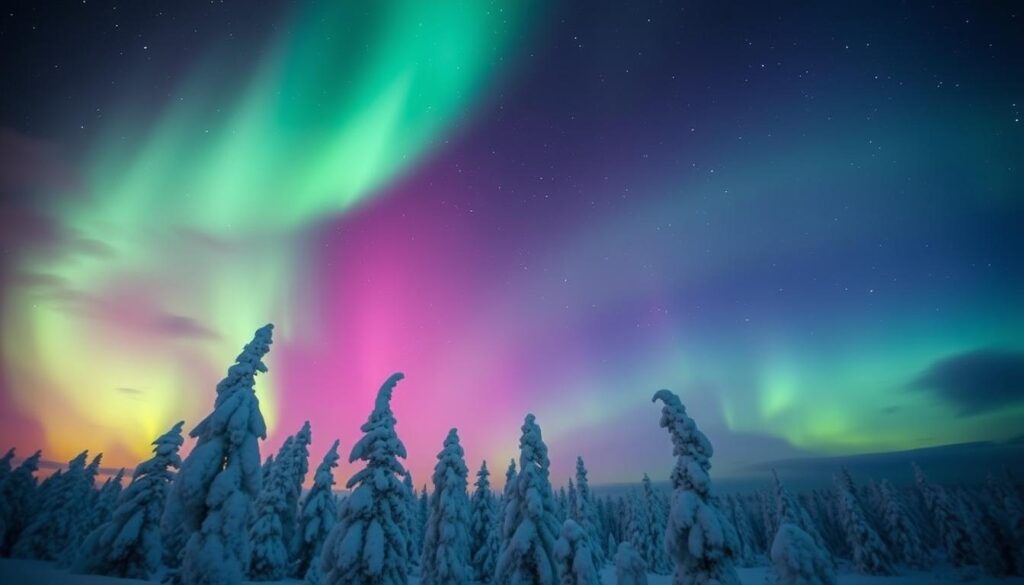
The award-winning UK travel firm Trailfinders recommends destinations like Finnish Lapland, Norway’s Lofoten Islands, Svalbard, and Iceland for prime aurora viewing opportunities. These locations offer dramatic landscapes and minimal light pollution, making them ideal for witnessing this natural phenomenon.
Calmcations: The Quest for Tranquility
In contrast to the excitement of noctourism, “calmcations” focus on creating a sense of tranquility and escape from noise pollution. The World Health Organisation has identified noise pollution as a significant health concern in Western Europe, making calmcations an increasingly appealing travel trend.

Innovative offerings like Havila Voyages’ “quiet escapes” along the Norwegian coast feature sound monitoring stations and live noise forecasts, comparing decibel levels to major cities. Additionally, tech-free cabin retreats like Unplugged and off-grid architectural experiences such as Majamaja in Helsinki allow travelers to disconnect from technology and reconnect with nature.
These nature-based travel innovations reflect a deeper desire for meaningful connection with the natural world and escape from the constant stimulation of modern life. By providing unique experiences and destinations, the travel industry is catering to the evolving needs of travelers in 2025.
Technology and Social Influences on Travel Decisions
The travel industry is on the cusp of a technological revolution, with AI and social media transforming how we plan and experience our trips.
AI’s Growing Role in Travel Planning and Experiences
Artificial intelligence is revolutionizing the way we plan our trips. According to travel tech company Amadeus, nearly 50% of its customers are planning to prioritize generative AI tools through 2025. Innovative applications like Byway’s proprietary engine are simplifying complex multi-country travel itineraries, while Tripadvisor’s AI-powered trip planning tools are making travel planning more efficient.
AI is not only enhancing the planning process but also improving the actual travel experience. For instance, Hyatt’s AI-powered beds monitor vital signs for better sleep, and airports are using AI for more efficient baggage handling.
Social Media as the New Travel Agent
Social media is driving travel decisions like never before. Today, 35% of travelers use social platforms to research and organize their trips, marking a 13% increase year-on-year. Gen Z travelers are particularly susceptible to social media influence, being 34% more likely than average to be inspired by celebrity and influencer content.
The shift from traditional travel resources to digital communities is significant, with authentic experiences from real travelers carrying more weight than professional marketing. However, a countertrend is emerging among some travelers, particularly Gen Z, who are returning to physical travel brochures for inspiration alongside digital resources.
Emerging Destination Trends and Seasonal Shifts
With overtourism concerns on the rise, travelers are increasingly seeking unique, less crowded destinations for their vacations. This shift is driving the discovery of new places and alternative travel times, reshaping the tourism landscape.
Off-the-Beaten-Track Goes Mainstream
Travelers are now looking beyond popular hotspots to experience destinations where they feel “welcomed wholeheartedly.” The concept of “destination dupes” is gaining traction, where travelers opt for locations similar to famous spots but with fewer crowds. For instance, instead of visiting Cornwall, travelers are choosing Norfolk for its similar charm but more authentic experience.
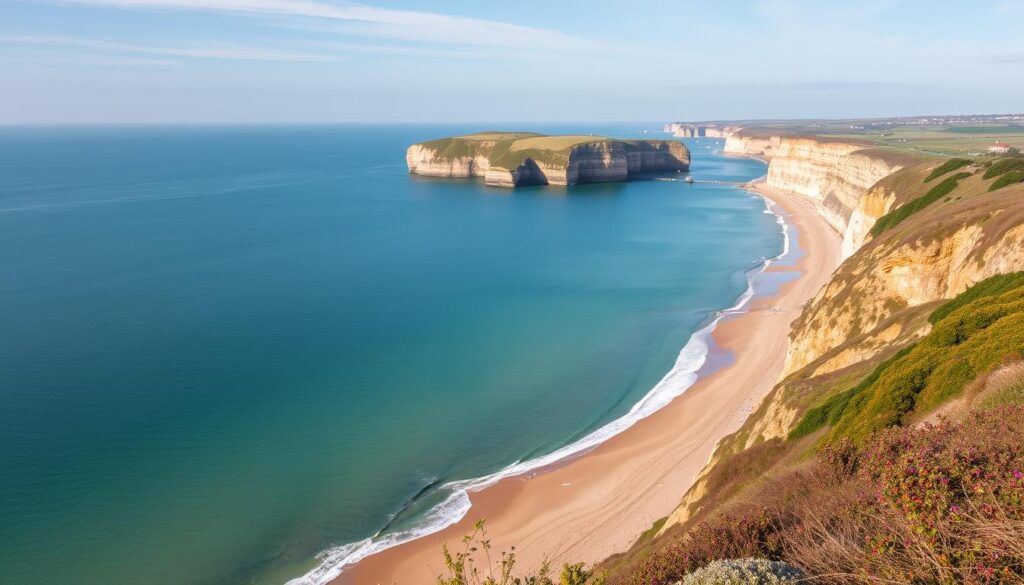
Emerging destinations like Uzbekistan, Zanzibar, Madagascar, and the Aldabra islands are gaining popularity due to their unique experiences and untouched beauty. Luxury tour operators are now offering high-end experiences in these locations, such as luxury yacht trips in the Aldabra islands.
Coolcations and Off-Season Safaris
The increasing temperatures in traditional Mediterranean hotspots are driving travelers to seek “coolcations” in northern Europe. Destinations like Finland and Norway are becoming more popular, with Scott Dunn reporting a 26% increase in bookings to these areas in 2024.
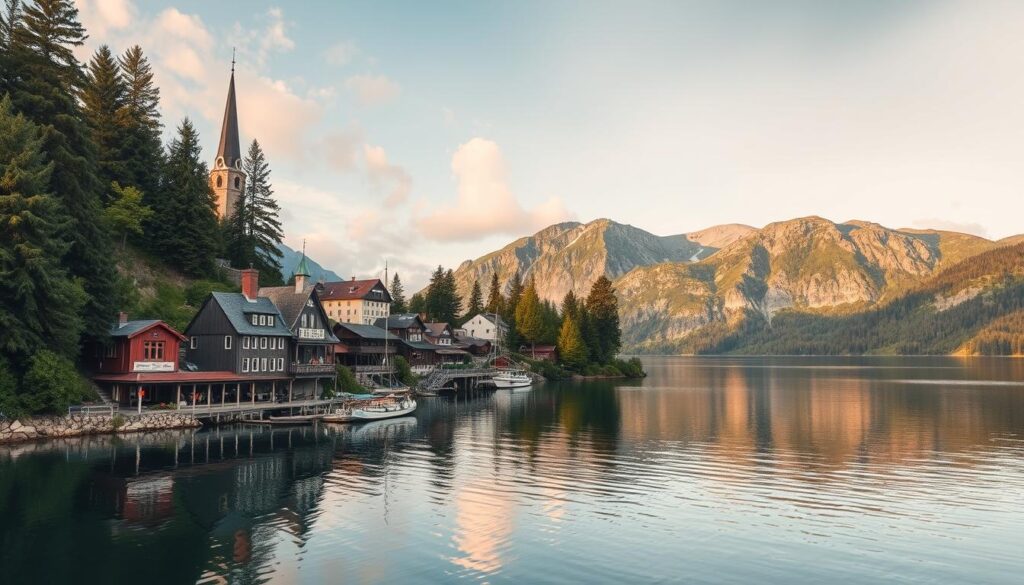
The shift in seasonal travel patterns is also evident in safari tourism, with the peak season now moving from December to March due to changing climate patterns and affordability considerations. This change offers travelers a more comfortable and less crowded safari experience.
Social and Cultural Travel Motivations
The modern traveler is driven by a complex mix of desires, including the need for social connection and cultural exploration. As we navigate the evolving travel landscape, it’s clear that social and cultural motivations are playing an increasingly significant role in shaping our travel choices.
The Return of Holiday Romance and Group Travel
With the rise of digital burnout, travelers are seeking more meaningful in-person connections. According to a 2024 Forbes Health survey, 79% of Gen Z feel exhausted from online dating, driving a trend towards holiday romances and group travel. Companies like G Adventures and Flash Pack are capitalizing on this trend by offering expanded options for solo travelers seeking social adventures.
Nostalgia Travel: Revisiting the Past
The “New Heydays” trend, identified by Globetrender, involves millennials rebooting their childhood vacations. This nostalgia-driven travel is seeing a rise in adult summer camps in the US, Eurocamp holidays, and retro-themed accommodations like the popular Polly Pocket Airbnb.

Remote Work and Digital Nomad Destinations
As remote work continues to reshape travel patterns, 30% of Gen Z and millennials plan to work from different countries in the future. Key factors influencing their destination choices include reliable internet (40%), favorable weather (33%), and the ability to balance work with leisure activities (32%).
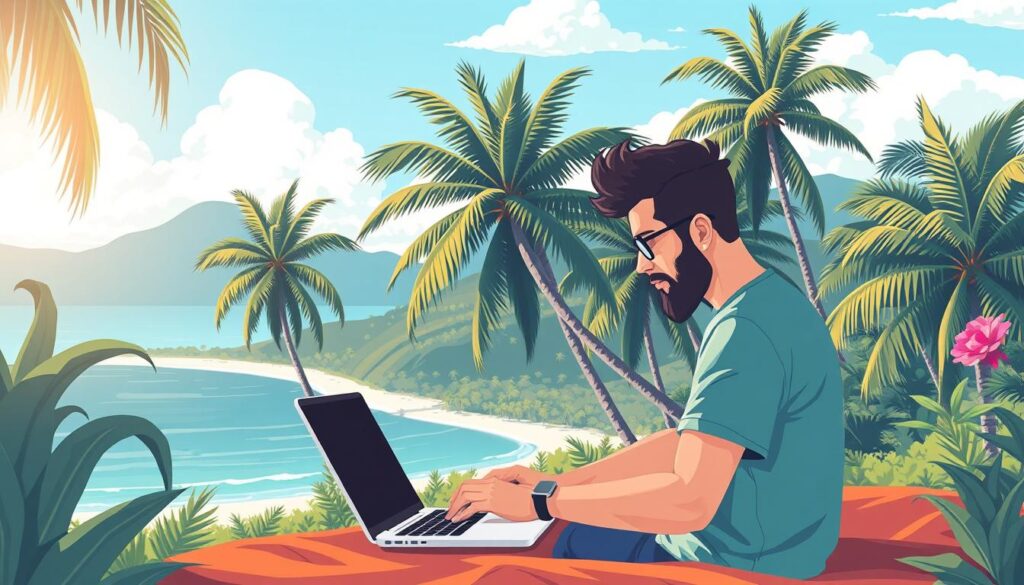
These trends highlight the diverse motivations behind modern travel, from seeking social connections and nostalgic experiences to embracing the flexibility of remote work. As the travel industry continues to evolve, understanding these motivations will be crucial for destinations and travel companies looking to cater to the changing needs of travelers.
Embracing the Future of Travel
As we look to the future of travel, it’s clear that 2025 will be shaped by emerging trends that prioritize sustainability, luxury, and personalization. The travel industry is evolving to meet the changing demands of travelers who are seeking more than just a destination – they’re looking for meaningful experiences that combine comfort, adventure, and authentic connections.
Travelers are increasingly balancing their desire for new adventures with practical considerations like budget constraints and environmental impact. To meet this demand, travel brands must adapt by offering more personalized, sustainable, and luxurious experiences. This includes leveraging data-driven decision making to anticipate future demand and stay ahead of the competition.
At CoWrit Technologies Inc, we can help travel businesses capitalize on these trends through our comprehensive services, including AI-powered content creation, website development, and digital marketing strategies. By embracing innovation while staying true to the timeless elements that make travel meaningful, successful travel businesses in 2025 will be those that prioritize connection, discovery, and transformation. For specialized support, reach out to our team via WhatsApp (+44-7822010953).
